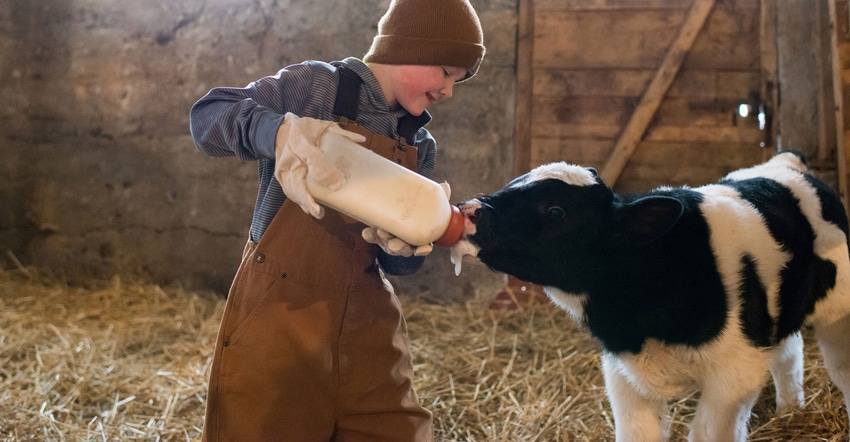April 6, 2020

Spring is always a busy time on the farm, but this year is presenting unique challenges due to the coronavirus pandemic, according to an agricultural safety specialist in Penn State’s College of Agricultural Sciences.
“Because schools and daycare services are closed, youth are at home all day,” says Linda Fetzer, Extension associate in agricultural safety and health. “Children who live on farms may have more opportunities to be exposed to farm hazards and risks as their families continue with operations.”
She pointed out that nearly a quarter of Pennsylvania farm fatalities in 2019 involved youths under the age of 18, which underscores the need for extra vigilance.
“Children and youth are often untrained, inexperienced, and emotionally or physically immature for many agricultural work tasks,” she said. “That is why it is so important that farming families have top-of-mind awareness when hiring youth or assigning chores to children.”
Here are some safety tips and resources:
1. Wash your hands. “Farms are continuing normal operations, which means that operators will be interacting with workers and others who will come on the farm to conduct business,” Fetzer says. “It is especially important for adults to wash their hands or use hand sanitizer before touching or interacting with their children.”
2. Tractor safety is paramount. Farm tractor accidents continue to be a major cause of fatalities in Pennsylvania.
“It is important to keep young children away from tractors, and older teens driving tractors need to be old enough and have the maturity to operate them safely,” she says.
3. Watch young children. Children should stay at least 10 feet away from farm equipment so that the operator can easily see them.
“Adults should make sure children are away from work areas, preferably in a fenced yard with an adult or older child to watch them,” she says.
4. Be selective when assigning chores. “If your children are old enough to be active in the farm operation, make sure they are doing age-appropriate tasks,” she says. “Youth doing work that doesn’t match their developmental level and abilities can increase the risk of injury.”
Fetzer pointed to the Agricultural Youth Work Guidelines from the National Children’s Center for Rural and Agricultural Health and Safety as a good resource for farm families.
“Social distancing, hand hygiene, and covering one’s nose and mouth when coughing or sneezing are a few ways to keep families healthy,” says Fetzer on COVID-19 prevention.
“We understand farm families are navigating unique circumstances due to the pandemic,” she adds. “But one difficulty they should never have to face is having a child injured on the farm. Being mindful of good safety practices can help to avoid a tragic outcome.”
Penn State helps run the Safety in Agriculture for Youth project, a clearinghouse of curriculum and resources to teach farm safety for 4-H and FFA educators. Another tool is the National Safe Tractor and Machinery Operation Instructor Program, which trains instructors to teach tractor and machinery safety to 14- and 15-year-old youths.
Visit Penn State Extension online to find more information on farm safety and rescue training.
Source: Penn State Cooperative Extension, which is solely responsible for the information provided and is wholly owned by the source. Informa Business Media and all its subsidiaries are not responsible for any of the content contained in this information asset.
You May Also Like




